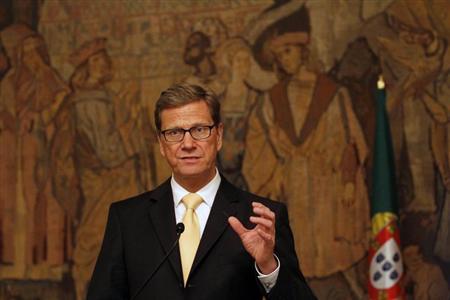(Reuters) – Germany’s openly gay foreign minister has told Moscow’s envoy to Berlin a Russian draft law banning “homosexual propaganda” contravenes human rights and could harm the country’s ties with Europe, Spiegel online said on Tuesday.

The German foreign ministry confirmed the meeting on Monday evening between Foreign Minister Guido Westerwelle and Russia’s ambassador in Berlin, Vladimir Grinin, but declined to comment on what they discussed.
Westerwelle had made clear that in Germany’s view the law violated the European human rights convention, the report said.
“Such a law will hamper European-Russian relations and will harm Russia’s image in Europe,” it cited an unidentified official as saying, setting out Westerwelle’s position.
Westerwelle told Grinin he spoke as a “friend of Russia” who wanted Moscow to better defend human rights and democracy, Spiegel said.
Scuffles broke out on Friday between gay activists and Russian Orthodox Christians in Moscow when the State Duma, Russia’s lower house of parliament, backed the draft law.
Critics see the law as an attempt to shore up support for President Vladimir Putin after months of protests that have sapped his popularity in the still largely conservative country.
Homosexuality, punished with jail terms in the Soviet Union, was decriminalized in Russia in 1993, but much of the gay community remains underground and prejudice runs deep.
The United States, which is at odds with Putin over a range of human rights issues, has voiced concern about the measure.
Germany has also criticized Putin’s clampdown on dissent and its treatment of the Pussy Riot punk band, but trade ties between the two countries are booming. Putin put bilateral trade in 2011 at $72 billion.
(Reporting by Gareth Jones; Editing by Louise Ireland)





